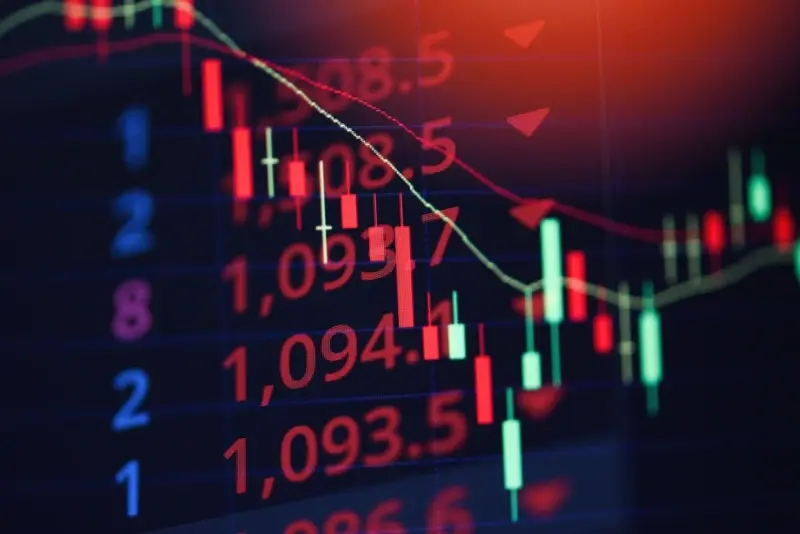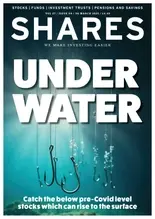
Stocks in Europe had a weak start on Friday, as the threat of more Middle East sabre-rattling and doubt of US interest rate cut timing damaged investor morale.
Perhaps in a sign of the times, BAE Systems was among only a handful of large-caps in London to trade higher.
A red-hot US jobs report could damage sentiment further later. The data is reported at 1330 BST.
The FTSE 100 index opened down 73.44 points, 0.9%, at 7,902.45. The FTSE 250 was down 191.85 points, 1.0%, at 19,681.34, and the AIM All-Share was down 4.39 points, 0.6%, at 738.19.
The Cboe UK 100 declined 0.9% at 790.02, the Cboe UK 250 also fell 0.9% to sit at 17,147.56, while the Cboe Small Companies was down 0.1% at 14,730.35.
The CAC 40 in Paris slumped 1.2%, while Frankfurt’s DAX 40 gave back 1.1%.
A barrel of Brent oil fetched $90.65 early Friday, up from $89.13 at the London equities close on Thursday. It had topped $91 a barrel earlier Friday, however.
Israeli Prime Minister Benjamin Netanyahu has threatened consequences in the event of an Iranian attack on his country.
‘Iran has been acting against us for years, both directly and through its proxies; that is why Israel is taking action against Iran and its proxies, defensively and offensively,’ Netanyahu said at the start of a meeting of the Israeli security cabinet on Thursday evening, his office announced.
‘We will know how to defend ourselves and we will act according to the simple principle: Whoever harms us or plans to harm us, we will harm them,’ Netanyahu said.
The Israeli government and its ally the US are concerned that Iran is preparing for an imminent attack, the news portal Axios quoted US and Israeli officials as saying.
Defence company BAE Systems was one of just a handful of FTSE 100 constituents in the green in early trade, rising 0.4%. The stock has more than doubled since late-February 2022, when Russia mounted an invasion of Ukraine.
It was a similar story in mainland Europe. Among the only blue-chips in the green in Paris were oil company TotalEnergies, up 0.4%, and aerospace and defence firm Thales, rising 0.2%.
BP fell 0.3% in London, despite the rising Brent price. Shell added 0.2% as it set out its customary pre-results quarterly outlook note.
The oil major cautioned results from its Integrated Gas division in the first-quarter are expected to be ‘significantly lower’ than in the fourth, and said it expects write-offs worth $600 million in its Upstream arm.
The London-based firm expects Integrated Gas adjusted earnings before tax and depreciation between $1.2 billion and $1.6 billion.
‘Trading & optimisation results are expected to be strong, but significantly lower than an exceptional Q4,’ it commented.
In Upstream, Shell warned of $600 million in exploration well write-offs, largely in Albania. It expects adjusted earnings before tax and depreciation between $2.7 billion and $3.1 billion.
Elsewhere, in Chemicals & Products, ‘trading & optimisation is expected to be significantly higher’ than a quarter earlier. For this division, Shell predicts adjusted earnings before tax and depreciation between $0.8 billion and $1.0 billion.
In Asia, the Nikkei 225 in Tokyo lost 2.0%, while the Hang Seng Index in Hong Kong rose 0.2%. Financial markets in Shanghai were closed. In Sydney, the S&P/ASX 200 fell 0.6%.
In New York overnight, both the Dow Jones Industrial Average and the Nasdaq Composite tumbled 1.4%, while the S&P 500 shed 1.2%.
Confidence in three rate cuts from the Federal Reserve this year, beginning in June, is being tested by a string of recent data indicating the US economy remains in rude health, while bank officials have done little to soothe concerns.
Minneapolis Fed chief Neel Kashkari said Thursday that there was a chance of no reductions this year, calling inflation figures in January and February ‘a little bit concerning’ and adding that he wanted to see more positive data.
His Philadelphia counterpart Patrick Harker warned prices were still rising too sharply and that ‘we’re not where we need to be’, while Richmond boss Thomas Barkin called it ‘smart’ to take time to get a clearer idea about the path for inflation.
Eyes now turn to Friday’s nonfarm payrolls reading, at 1330 BST, which is expected to show the pace of jobs growth eased to 200,000 in March, from 275,000 in February, according to FXStreet.
The pound was quoted at $1.2621 early Friday in London, down from $1.2667 late Thursday. The euro fell to $1.0836 from $1.0865. Against the yen, the dollar fell to JP¥151.33 from JP¥151.67.
Comments from Bank of Japan’s governor, Kazuo Ueda, provided some strength for the yen.
According to Reuters, Ueda signalled that the BoJ could ‘respond with monetary’ policy if currency moves appear to be having a significant impact on inflation and wages.
Back in London, AIM-listed Steppe Cement fell 6.3%. The Kazakhstan-focused cement producer said it sold KZT3.78 billion, around $8.4 million worth of cement in the first-quarter, down 23% from a year prior.
‘Steppe Cement’s market share decreased to 11.5% in the first quarter of 2024 compared with 12.7% in the first quarter of 2023,’ it added.
‘Transportation costs have increased significantly and shipments to the southern region of Kazakhstan result in low margins. The cement market in winter is comparatively small in the northern regions of Kazakhstan compared with the summer season, and therefore the company, which has been operating at full efficiency over the quarter, has chosen to build up clinker inventory in preparation of the summer season, rather than make sales at depressed prices.’
The company also announced a proposed capital return of 1.5 pence per share, through a capital reduction. The proposal is subject to shareholder approval at an April 26 extraordinary general meeting.
Gold was quoted at $2,284.94 an ounce early Friday, down from $2,292.67 late Thursday.
Before the US jobs report, Friday’s economic calendar has a UK construction purchasing managers’ index reading at 0930 BST.
Copyright 2024 Alliance News Ltd. All Rights Reserved.




